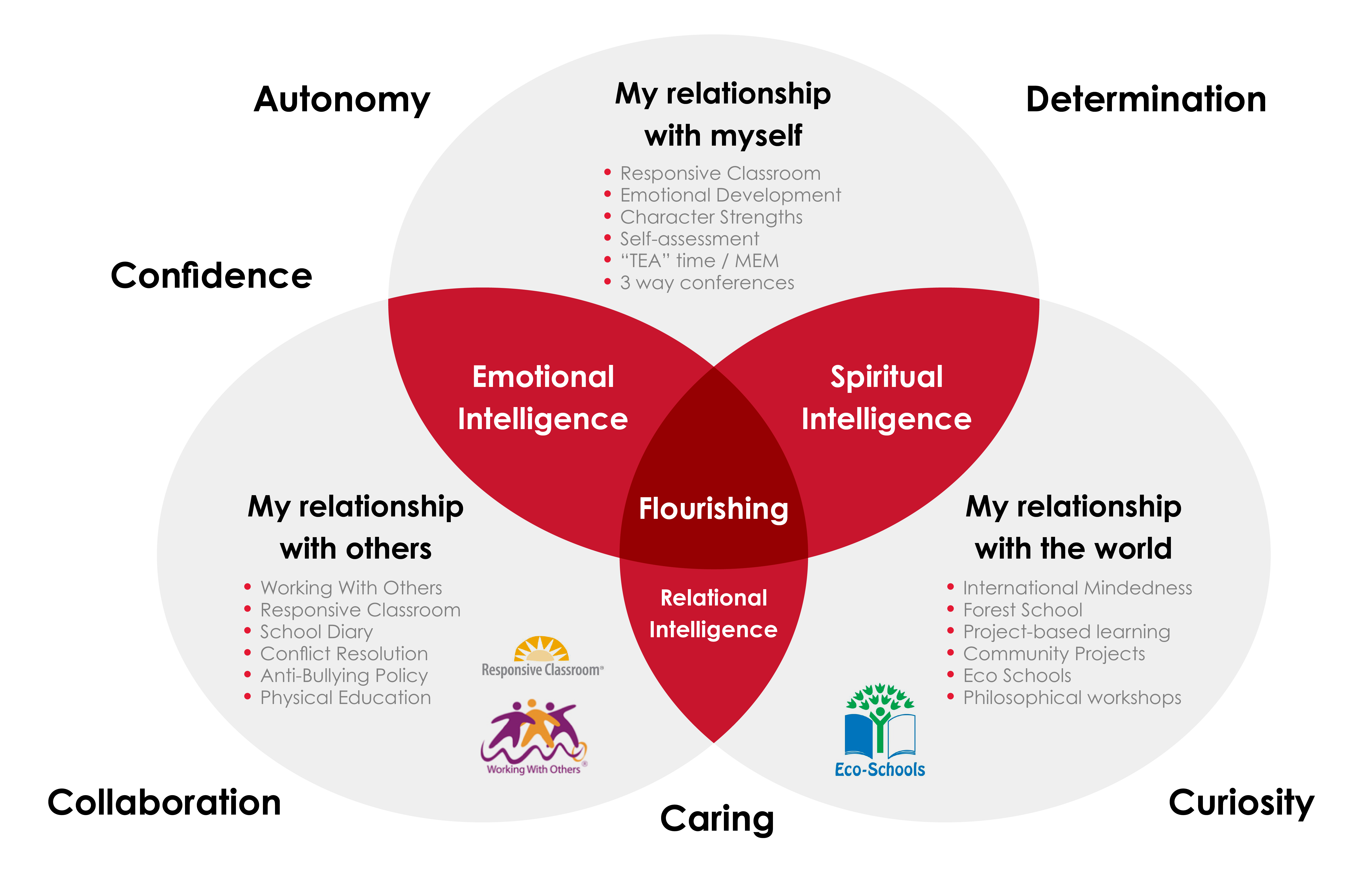PSED
The Personal, Social and Emotional Development of our students is a fundamental part of our approach at Redbridge School. We have invested in the best tools and programs to support students develop their Emotional, Relational and Spiritual Intelligence.

We have developed a comprehensive programme for the holistic development of our students with dedicated times during the week exclusively focused on PSED. We aim to embed these practices into the school day. To help us achieve this goal, we have selected some scientifically developed and well-researched tools which form part of our comprehensive PSED programme.

Working With Others
Our objective is to build relational intelligence and to give our school community the tools, strategies and understanding to get on with people, to discover important life skills for learning and relating to others, to talk about this, to learn with other people and to plan for effective group work:
- Relational intelligence involves being able to connect, respect and communicate;
- When we have a higher relational intelligence we are happier, less stressed, emotionally intelligent, resilient, confident and self-aware;
- We can solve problems, support each other, learn together and achieve more;
- The key building blocks in this approach are trust, communication and problem solving;
- Pre-briefings and debriefings are key learning moments, allowing students to practise vocabulary and anticipate difficulties;
- We create the structure for effective group work and positive relationships. This involves organising the groups, assigning specific roles to people, arranging the environment, and creating tasks that encourage cooperation.
Conflict resolution
At Redbridge School we aim to create a positive environment and to minimise the number of conflicts that arise. In order to achieve this we:
- Encourage empathy and bonds between students and adults;
- Organise the space well, providing a range of materials and activities;
- Clearly define rules and boundaries.
If and when conflicts happen:
- We intervene;
- We help students to calm down by recognising and verbalising their feelings;
- We ask students to tell us what happened (and not why it happened);
- We encourage students to suggest solutions to the problem and to choose one they agree on;
- We follow up with the students to ensure that the problem is solved.
Anti-bullying
We have a zero tolerance approach to bullying and our policy provides a range of proactive and reactive steps to ensuring that it is dealt with quickly and effectively. One outcome of our successful PSED programme is that incidents of bullying are very rare.
